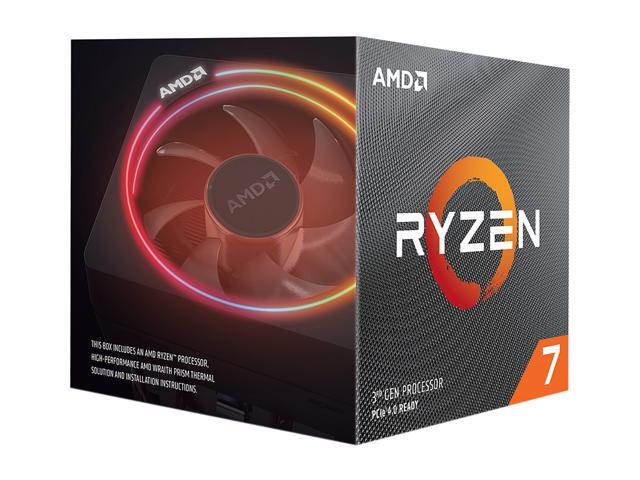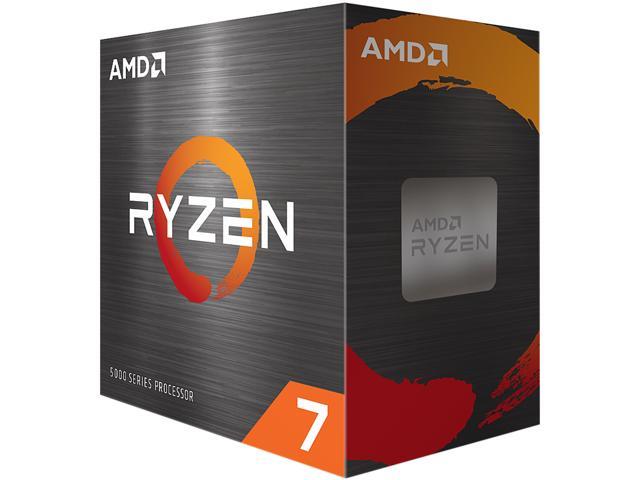Conclusion
Performance, stability, and the gameplay experience of hardware evolve over time. It is always best practice to re-evaluate and look at the performance of hardware after some time. In the past year, there have been many BIOS updates providing AMD AGESA code updates, as well as AMD Chipset driver updates, and just general game patching and Windows patching.
In this review today we have re-visited AMD Ryzen CPU performance to compare the AMD Ryzen 7 5800X with the previous generation AMD Ryzen 7 3700X in a direct “versus” performance review. We used synthetic application benchmarks, content creation rendering benchmarks, and of course games at 1080p and 4K with a fast video card. We even turned on Precision Boost Override (PBO) on the Ryzen 7 5800X to see how much of a real-world difference it makes. We have more of these reviews planned with Ryzen 5000 series CPUs, so stay tuned.
If you aren’t familiar with the AMD Ryzen 7 5800X, this CPU was released by AMD in November of 2020 with an MSRP of $449. This CPU is based on AMD’s latest Zen 3 architecture, which supersedes the Zen 2 architecture found on the Ryzen 3000 series CPUs. The Ryzen 5000 series CPUs use the newer Zen 3 architecture which has re-organized CCDs/CCXs to optimize cache latencies, and with other tweaks has improved IPC by 19% over Zen 2. The Ryzen 7 5800X is an 8c/16t CPU that frankly has been very popular for enthusiast gaming over the last year.
Performance
The AMD Ryzen 7 5800X started off strong in PCMark 10 being 14% faster than the Ryzen 7 3700X and was even better in the Applications Benchmark testing Microsoft Office performance. The Ryzen 7 5800X was 20% faster than the Ryzen 7 3700X, proving that 19% performance improvement. This means for office-type applications in the workplace, the Ryzen 7 5800X should be a really nice performance boost for general tasks. Geekbench showed that multi-core performance was up 18% with the Ryzen 7 5800X over the Ryzen 7 3700X. Single-Core performance is where it really shined, proving to be 29% faster than the Ryzen 7 3700X. This backups the MS Office performance improvements as those are mostly single-threaded and clock speed is a big factor in performance there.
SiSoftware Sandra 2021 tested the integer and floating-point performance in multi-thread and single-thread performance. In Integer performance, we saw about a 12% faster performance in multi-thread but a 28% advantage in single-thread. Floating-point was 20% in multi-thread and 23% in single-thread. From this, we can say that it appears single-thread performance is up whether integer or float and just generally speaking floating-point performance seems to be improved more.
This is also backed up when we look at the AIDA64 performance. CPU Queen, which mostly tests integer was up 12%, but AES was up a whopping 100% and SHA3 up 50%. There have been huge improvements in Zen 3 in floating performance whether single or multi-threaded, and single-threaded has a large boost overall. Memory performance was the same on both CPUs, right where it should be.
Content creation performance, rendering, is also a big advantage with the Ryzen 7 5800X versus the Ryzen 7 3700X. Cinebench was up 25% with the Ryzen 7 5800X in multi-threading and 22% in single-threading. Blender Benchmark proved that every scene was improved in render times with the Ryzen 7 5800X, in the 20% range of performance improvement which is a lot for rendering scenes that take hours. We even saw improvements in V-Ray by 30% and video transcoding by 14%.
Let’s also not forget games, the Ryzen 7 5800X does allow faster performance at lower resolutions or in games that are not as GPU dependent. If you pair a game with a fast GPU but want to play at lower resolutions, or lower game settings, the CPU is going to matter a lot more. We saw that even in GPU demanding games like Cyberpunk 2077 performance can improve a bit with the Ryzen 7 5800X. But where it really shines is in games like Microsoft Flight Simulator 2020, Crysis Remastered, and even Watch Dogs Legion. We experienced almost a 30% performance advantage in MS Flight Sim 2020 and Crysis Remastered with the Ryzen 7 5800X at 1080p, that’s very significant.
4K is going to be more GPU dependent, even with a GeForce RTX 3080 Ti. We found that even a GeForce RTX 3080 Ti isn’t fast enough in games like Cyberpunk, or Metro Exodus Enhanced, or even MS Flight Sim 2020. However, there was one game that STILL benefited from a faster CPU at 4K, Crysis Remastered, it received an 8% improvement in performance with the Ryzen 7 5800X versus Ryzen 7 3700X. But for the most part, you will be GPU bound at 4K, especially with anything slower than an RTX 3080 Ti.
Cooling, Clock and PBO
The Ryzen 7 5800X does run hotter than the Ryzen 7 3700X. The TDP is 105W on the Ryzen 7 5800X, while it is 65W on the Ryzen 7 3700X. In our testing, we found the Ryzen 7 5800X reached 78.5c at 1.438V and 4,850MHz maximum core clocks running Cinebench R23 for 10 minutes. When we enabled PBO we found the Ryzen 7 5800X reached 79.8c at 1.481V and 4,950MHz maximum core clocks running Cinebench R23 for 10 minutes. For comparison, the Ryzen 7 3700X ran at 58.3c at 1.463V and 4,400MHz maximum core clocks running Cinebench R23 for 10 minutes. That is all with our NZXT Kraken X63 a 280mm AIO.
We found that the Ryzen 7 5800X did not benefit much from Precision Boost Override or PBO. We had this enabled at the maximum +200MHz range with all limits off. However, we saw 1-3%, with 1-2% being the average in terms of performance differences with PBO. The actual clock speed in all-core performance was not improved much, and only more so in single-thread performance. However, the Ryzen 7 5800X seems to be being pushed to its maximum out-of-the-box, there isn’t much headroom here. Therefore, PBO and overclocking are really not worth the extra power draw and temperature concerns. The result is not noticeable in terms of performance, therefore with the Ryzen 7 5800X we just recommend keeping PBO off and enjoying the stock performance with a good cooler so that Precision Boost 2 can do its thing.
Final Points
Here in the fall of 2021 the AMD Ryzen 7 5800X is a very well-balanced, and powerful CPU for every task. The CPU has matured over time with new BIOS and AGESA updates, along with new chipset drivers and so forth that have pushed it to the peak of its potential. It’s a well-rounded CPU, capable of providing fast performance in office and work use cases, and is also the best balance for enthusiast-class performance gaming on the PC. It offers the best value for gaming, giving you full 8 cores and 16 threads, which will not hold you back in gaming, and also allow plenty of computing processing for background tasks while gaming. It’s the right balance for providing a high-end gaming experience.
Our tests have shown that it has some pretty significant improvements over the last generation Ryzen 7 3700X Zen 2 based CPU. It has improved float performance, as well as improved single-thread performance. It also has improved integer performance, but you can’t deny the Ryzen 7 5800X is the better CPU if you are mostly single-thread bound. If you play games at lower resolutions or lower game settings for the framerate advantage, the Ryzen 7 5800X will give you that edge. If you are playing games at 4K, you will be GPU-bound, and a video card upgrade instead may be your ticket. But if you do more than just gaming, then it will provide the best of both worlds.








There is no doubt that the Zen 3 architecture is a very good architecture. We have been using the Ryzen 7 5800X in our primary GPU test bench since November of 2020 for the very reason of giving us the best performance on fast GPUs. It really makes a difference in some games as we have seen, especially with the fastest of GPUs. Many people might tell you the CPU doesn’t matter when it comes to gaming at high-resolutions, but it actually does. If you pair a high-end fast GPU with it, it makes a difference. If you have a slow GPU or midrange to low-end, then of course not, but then you wouldn’t be playing at a high resolution anyway.
What matters most for games is still frequency, and single-thread IPC, it’s just still paramount to performance, and the Ryzen 7 5800X improves upon that over the Ryzen 7 3700X. We look forward to seeing what the next generation or refreshes will bring to the table in that regard.
